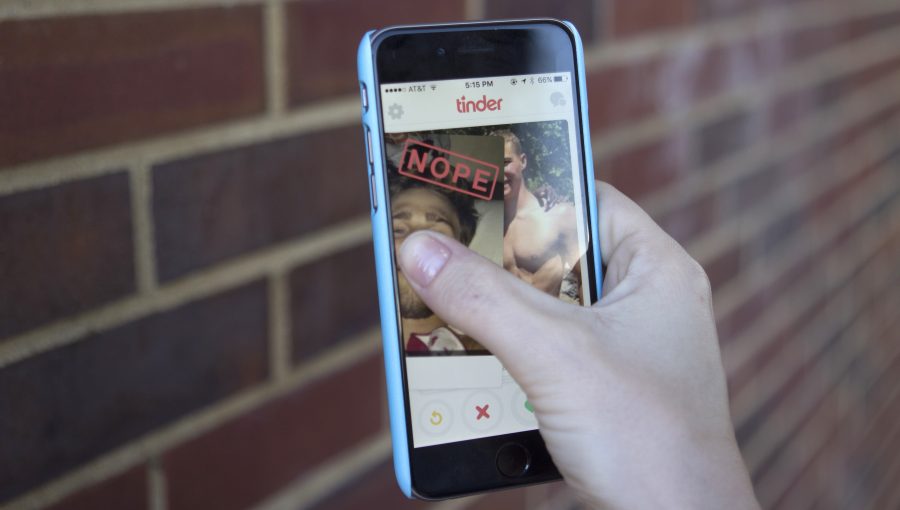Left. Left. Left. Right. Whoa, definitely left. Thumbs swipe quickly back and forth across smart phones on buses, in meetings and in the back rows of lecture halls as students search for everything from casual meet-ups to serious relationships.
Dating apps have changed the landscape for college students, who now seek relationships through algorithms rather than relying on serendipity in dining halls or libraries. Now, even dating websites seem antiquated compared to their leaner mobile counterparts, and users are opting for the convenience and immediacy of handheld connections.
There is an overwhelming number of choices for anyone trying to download their first dating app, each one with different rules and focuses. Here’s a look at some of the major dating apps on the market to see how each works and what it offers users looking for their own love story.
Tinder
Tinder is the app that redefined the way online dating works. This app has over 20 million users and places a heavy premium on split-second decisions and casual romantic relationships, though it can be used to seek out any level of intimacy from friends to soul mates. Its focus is instant gratification: automatic chat dialogs with local matches who could meet up later today, no big plans or restaurants reservations necessary.
Tinder connects to the users’ Facebook and then allows each person to create a profile and set search filters, such as distance range, age ranges and if interested in men, women or both. From there, users are shown one profile at a time and swipe right to indicate interest and left to turn it down. Mutual likes are sent to both users as a match, which allows you to chat with your new flame.
Bumble
Created by a Tinder co-founder, Bumble looks and operates very similarly, but with a few significant differences. Though the app looks almost identical, it provides more profile information and also forces users to initiate a conversation with their match within a time limit or else lose them forever. Perhaps most importantly, Bumble only allows women to message first, shifting the usual dynamic. If a man is particularly interested in a match, he can choose to extend it for another 24 hours, but only once and only one per day. If a user is seeking a match of the same gender, the initial message rules do not apply.
Coffee Meets Bagel
Coffee Meets Bagel is an app that was founded in San Francisco by sisters Soo, Dawoon and Arum Kang. It stands out as an app designed specifically for women. On their website, the founders boast that Coffee Meets Bagel is the anti-Tinder, as it strives for authenticity and privacy, qualities not often seen in other dating apps.
Coffee Meets Bagel syncs with each user’s Facebook account and uses information such as friends lists, interests and likes to find similar profiles. Every day at noon one of these matches, or “bagels,” is delivered to each user, who has 24 hours to accept or reject.
Happn
Happn is the missed connections section of the dating app world. This app focuses on proximity and the importance of serendipity in the search for love, offering users a second chance if they fail to seize the moment when they first see someone who interests them. Driven by real life encounters, this app is not effective if used from a dorm or apartment bedroom before class.
The app uses the locations services on a user’s phone to show profiles of people they have physically crossed paths with during the day. Each profile can be liked to show an interest, though chatting is allowed whether there is a mutual interest or not, a feature that is atypical among dating apps.
Pure
This app stands alone in its commitment to simplicity and convenience. Intended solely for casual engagement, users find like-minded individuals who are not interested in long-standing commitments. It also automatically deletes all evidence of each user after one hour, sending a clear message that the connections made through this app are not meant to last much longer than that.
Users are shown a picture and a name and then swipe left or right to indicate yes or no. Mutual interest is sent as a match, and users can chat to set up a meeting. Conversation histories, profiles, pictures and matches are deleted after one hour, and the app is left blank until the user comes back and starts the process over again.









